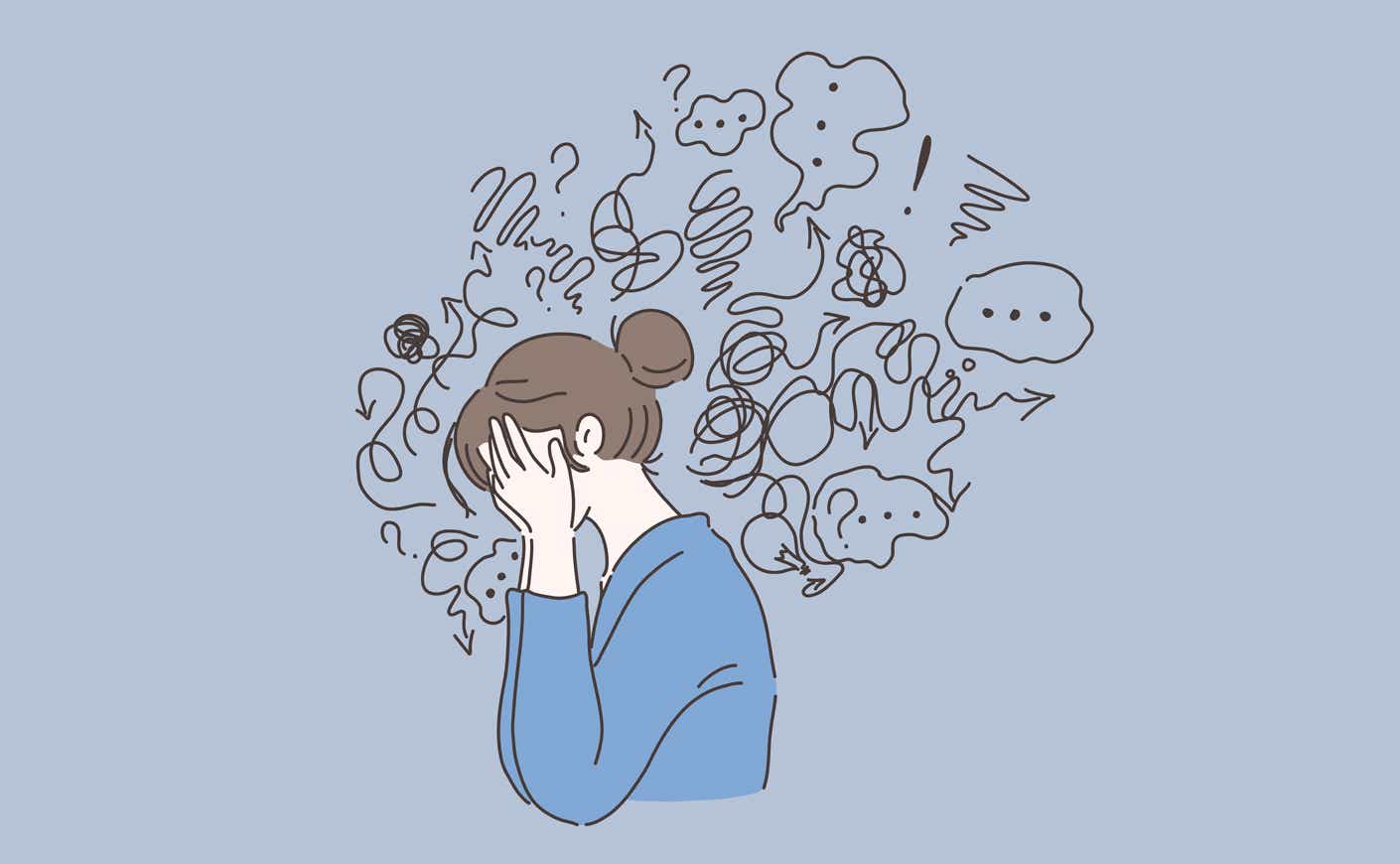We view anxiety as something to banish. It keeps us up at night, knocks us off-kilter, bars us from reaching our fullest potential. That’s why there’s a whole industry built around tamping down this uncomfortable emotion, marketing everything from meditation apps to weighted blankets. But are we wrong to villainize anxiety? Dr. Wendy Suzuki, a neuroscientist at NYU, says yes.
In her book, Good Anxiety, she argues that anxiety is actually an essential part of our survival and when harnessed can make us more productive, more creative, and can lead to a less stressful life. We asked Dr. Suzuki about the science of anxiety — what causes it, how it impacts our physical health, and how we can make it work for us.
Katie Couric Media: To start, can you break down what’s happening inside our brains and bodies when we’re feeling anxious?
Dr. Wendy Suzuki: There’s a stimulus that causes anxiety — taxes, the weather report, whatever that may be for you. And that immediately activates a brain structure called the amygdala, which helps us detect threats in our world. That leads to the feeling of anxiety, worry, and fear. It also activates a physiological stress response, known commonly as the fight or flight response, which increases our heart rate, increases our respiration, and shunts blood from our digestion and reproductive tract to our muscles so that we can either run or fight.
You write that modern-day life is causing low-grade chronic stress for a lot of us. Why is that?
The fight or flight response has been with us for 2.5 million years when the threats were lions, tigers, and bears. It was and continues to be protective and essential. But the problem is the volume of those anxiety triggers have really gone up in our modern world. It’s the news cycle, it’s Instagram, it’s taxes — all those things can trigger this response. We’ve turned the dial too far up on this critical emotion.
Tell us about how long-term anxiety can impact on our health.
Long-term stress can cause heart problems, digestive issues, and impact your reproductive health. It also attacks two of the brain areas that are most sensitive to aging. The hippocampus is critical for long-term memory formation and that is the structure that first gets hit in dementia and Alzheimer’s disease. The prefrontal cortex, which is important for decision-making and focus, also gets affected. These areas start to shrivel and particularly, in the hippocampus, cells die. You do not want dead cells in your hippocampus as you get older, because that’s already vulnerable.
Even still, you say that anxiety isn’t all bad, and that it can even be used to help us improve. Can you explain that?
The common way to think about anxiety is that it’s just a weight around your neck, something to get rid of. But really, it’s essential. That’s pretty easy to understand intrinsically. When we’re having a good day, and feel like we have a lot of energy, you’re experiencing a high level of brain activation. Well, anxiety, when it’s at a manageable level, also causes a particular kind of brain activation — and we actually need it to reach that optimal level of performance.
If we learn how to turn the volume down on our anxiety and turn in on some of those uncomfortable feelings, I also argue in the book that we can learn a lot about ourselves. That will lead to a more fulfilling, a more joyful, and less stressful life, no matter how counterintuitive that sounds.
And you provide a number of tools in your book to help us do that. What would you say are some of the most effective — and things we can all start incorporating in our everyday lives?
The two top tools that I always start with are things that can immediately turn down the volume of anxiety. The first is simply by breathing deeply for long durations in and out. You might have heard of this before. But what you might not have realized is that that works because it is stimulating the part of the nervous system that was evolved to directly counteract the fight or flight response. That’s known as the rest and digest system. It slows your heart rate down and slows your respiration. The best way to activate it is to breathe slowly in and out.
The second thing is moving your body, something that I’ve studied in my lab for many years at NYU. Physical activity is an amazing way to have an immediate positive effect on anxiety levels. The reason this works is that exercise stimulates the release of neurotransmitters in the brain like dopamine, serotonin, noradrenaline. I like to say that every time you move your body, it’s like giving your brain a wonderful neurochemical bubble bath that works to improve your mood and decrease anxiety and depression levels.
This interview has been edited for length and clarity.









